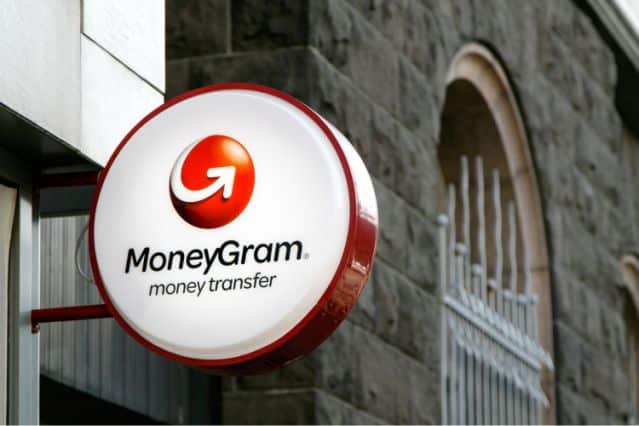MoneyGram Faces Class-Action Lawsuit Over Misrepresentation of Ripple Partnership and XRP Token
MoneyGram International, one of the leading publicly-listed remittance companies, is facing a class-action lawsuit from investors who allege misrepresentation regarding its strategic alliance with Ripple and the XRP token. The lawsuit, filed on March 1, 2021, in California, involves investors who purchased MoneyGram’s securities between June 17, 2019, and February 22, 2021. The case centers around claims that MoneyGram misled investors about the nature and significance of its collaboration with Ripple, a San Francisco-based blockchain company.
MoneyGram’s Partnership with Ripple and XRP
MoneyGram entered into a high-profile partnership with Ripple in June 2019. As part of the agreement, Ripple invested $30 million into MoneyGram, and the companies began working together to integrate Ripple’s blockchain-powered xRapid product into MoneyGram’s cross-border payment network. xRapid, later rebranded as On-Demand Liquidity (ODL), was designed to use the XRP token to facilitate faster and cheaper foreign exchange settlements for cross-border transactions.
At the time of the partnership announcement, MoneyGram made it clear that XRP would be integral to its foreign exchange settlement process, which led to a strong initial investor belief in the value and growth prospects of MoneyGram’s business. The collaboration was widely seen as a key move to improve MoneyGram’s competitiveness in the global remittance market.
Termination of the Partnership and the Lawsuit
In December 2020, however, MoneyGram reversed its stance, announcing that it was no longer reliant on Ripple’s xRapid (ODL) service for its foreign exchange trading needs. This move was seen as contradictory to earlier statements, where Ripple’s technology and XRP were touted as vital components of MoneyGram’s strategy. This shift, combined with the ongoing legal issues surrounding Ripple and the SEC’s lawsuit against the company, triggered the class-action lawsuit.
The investors argue that MoneyGram had failed to disclose the potential risks associated with XRP’s regulatory status. The SEC had filed a lawsuit against Ripple in December 2020, accusing the company of conducting an unregistered securities offering by selling XRP tokens. The lawsuit claims that XRP should be classified as a security, a stance that Ripple disputes.
The Financial Impact of the Ripple Partnership on MoneyGram
The partnership with Ripple, while beneficial in some aspects, also exposed MoneyGram to significant financial risks. Ripple paid MoneyGram substantial market development fees in exchange for utilizing the MoneyGram platform. According to The Wall Street Journal, MoneyGram received $38 million in net market development fees from Ripple in 2020, which accounted for around 15% of its adjusted earnings for that year.
These payments were crucial to MoneyGram’s financial performance, and if the SEC’s lawsuit results in XRP being classified as an illegal security, it could have a profound impact on MoneyGram’s earnings. The payment firm’s reliance on Ripple’s fees has raised concerns among investors, especially as the company has suspended its collaboration with Ripple in response to the SEC lawsuit and the broader regulatory uncertainty surrounding XRP.
The Future of the Partnership and Potential Losses for MoneyGram
The original agreement between MoneyGram and Ripple was set to expire in 2023, but the ongoing legal disputes and regulatory challenges prompted MoneyGram to terminate the partnership earlier than expected. As a result, the company faces not only legal challenges from investors but also the loss of a potentially significant source of revenue. If the SEC rules against Ripple, the consequences could extend far beyond Ripple itself, affecting companies like MoneyGram that have integrated XRP into their business models.
The class-action lawsuit filed against MoneyGram is just the latest development in the ongoing legal battle between Ripple and the SEC. As the legal and regulatory landscape continues to unfold, the outcome of these cases could have significant implications for the future of cryptocurrency partnerships in the financial sector.
Conclusion: MoneyGram’s Legal Challenges and the Impact of Ripple’s Lawsuit
In conclusion, MoneyGram’s involvement in a class-action lawsuit highlights the complexities and risks associated with the integration of cryptocurrencies like XRP into traditional financial systems. The partnership with Ripple, once seen as a promising move to enhance MoneyGram’s services, has now become a point of contention as legal uncertainties surrounding XRP and its regulatory status continue to impact the industry.
The lawsuit underscores the broader challenges faced by companies navigating the intersection of traditional finance and emerging digital assets. As the legal battles surrounding Ripple continue, the future of partnerships like the one between MoneyGram and Ripple remains uncertain. For investors, the ongoing developments signal the need for careful consideration of the risks associated with cryptocurrency-related investments.
To learn more about the innovative startups shaping the future of the crypto industry, explore our article on the latest news, where we delve into the most promising ventures and their potential to disrupt traditional industries.
Disclaimer: The information provided is not trading advice, Bitcoinworld.co.in holds no liability for any investments made based on the information provided on this page. We strongly recommend independent research and/or consultation with a qualified professional before making any investment decisions.




